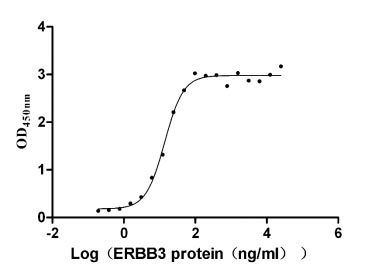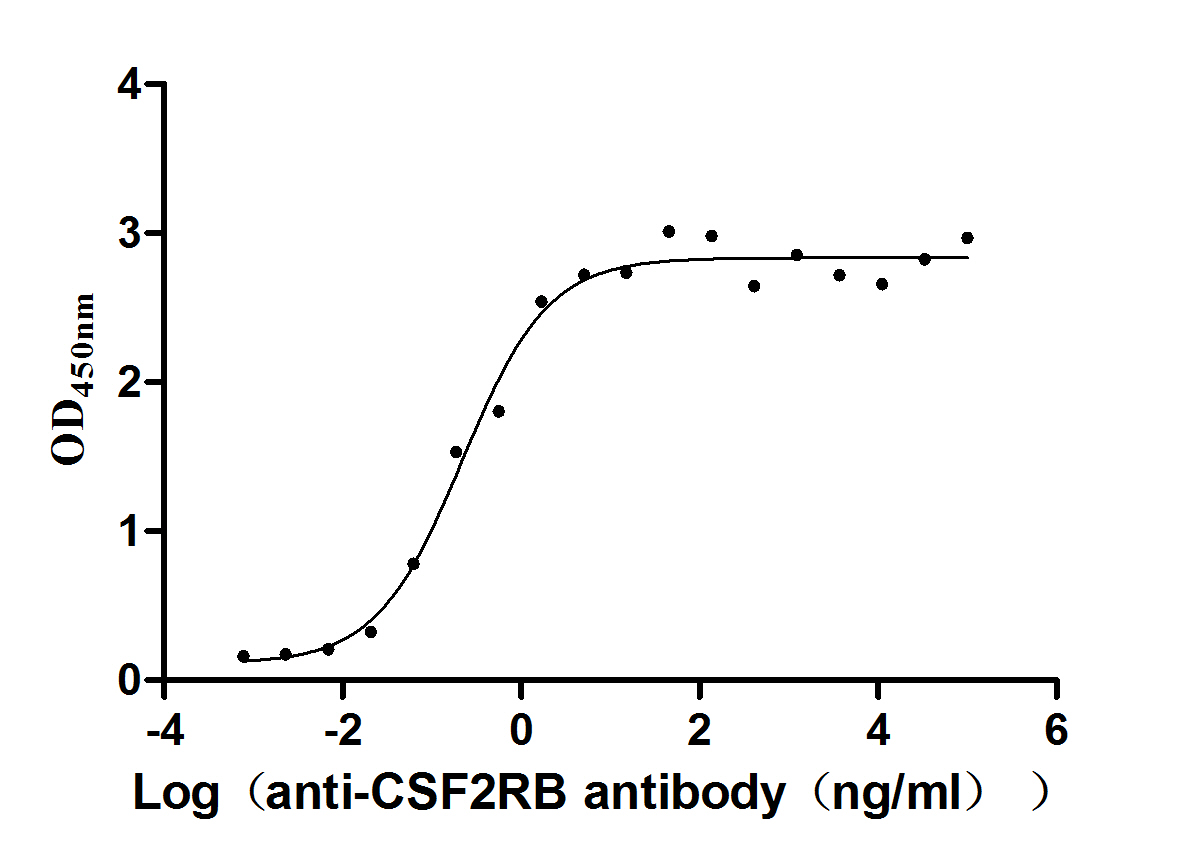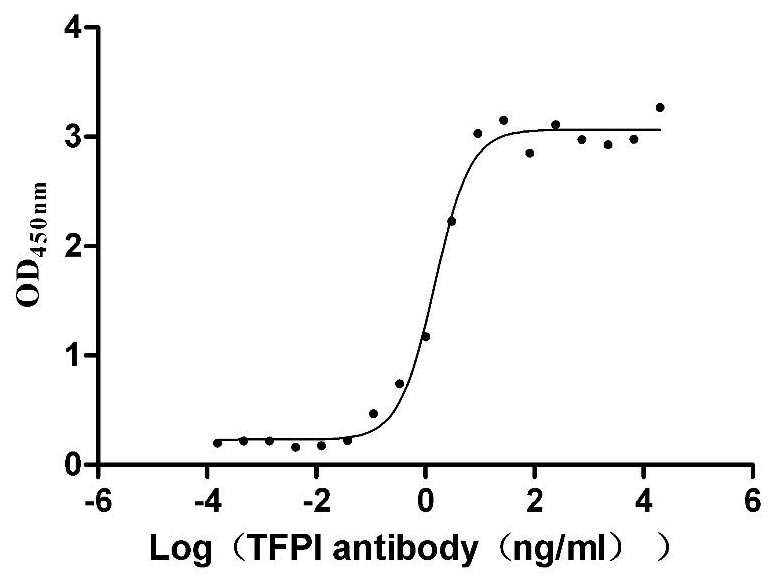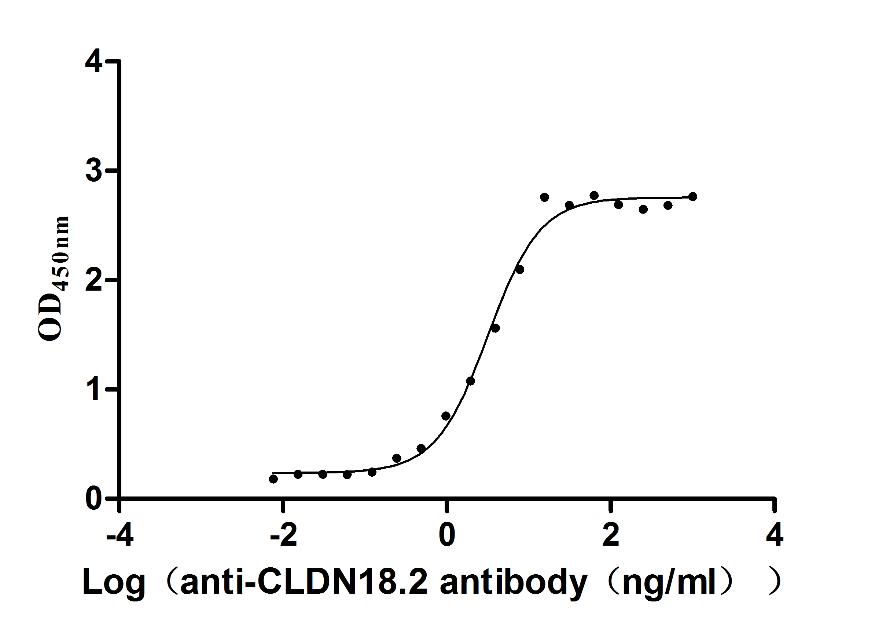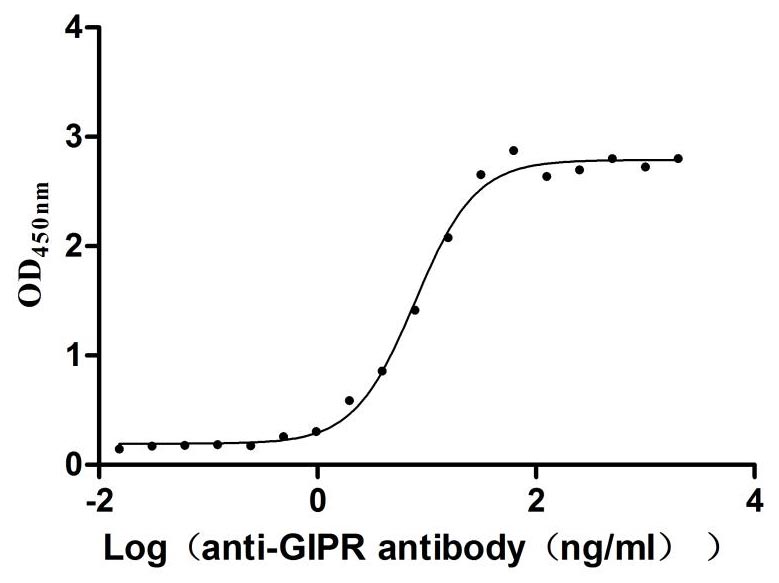Recombinant Human Arginase-1 (ARG1)
In Stock-
货号:CSB-EP002005HU
-
规格:¥1344
-
图片:
-
其他:
产品详情
-
纯度:Greater than 90% as determined by SDS-PAGE.
-
基因名:ARG1
-
Uniprot No.:
-
别名:A I; Al; ARG 1; arg1; ARGI1_HUMAN; Arginase 1; Arginase liver; Arginase type I; Arginase; liver; Arginase-1; Arginase1; Liver type arginase; Liver-type arginase; Type I arginase
-
种属:Homo sapiens (Human)
-
蛋白长度:Full Length
-
来源:E.coli
-
分子量:61.7kDa
-
表达区域:1-322aa
-
氨基酸序列MSAKSRTIGIIGAPFSKGQPRGGVEEGPTVLRKAGLLEKLKEQECDVKDYGDLPFADIPNDSPFQIVKNPRSVGKASEQLAGKVAEVKKNGRISLVLGGDHSLAIGSISGHARVHPDLGVIWVDAHTDINTPLTTTSGNLHGQPVSFLLKELKGKIPDVPGFSWVTPCISAKDIVYIGLRDVDPGEHYILKTLGIKYFSMTEVDRLGIGKVMEETLSYLLGRKKRPIHLSFDVDGLDPSFTPATGTPVVGGLTYREGLYITEEIYKTGLLSGLDIMEVNPSLGKTPEEVTRTVNTAVAITLACFGLAREGNHKPIDYLNPPK
Note: The complete sequence including tag sequence, target protein sequence and linker sequence could be provided upon request. -
蛋白标签:N-terminal GST-tagged
-
产品提供形式:Liquid or Lyophilized powder
Note: We will preferentially ship the format that we have in stock, however, if you have any special requirement for the format, please remark your requirement when placing the order, we will prepare according to your demand. -
缓冲液:Tris-based buffer,50% glycerol
-
储存条件:Store at -20°C/-80°C upon receipt, aliquoting is necessary for mutiple use. Avoid repeated freeze-thaw cycles.
-
保质期:The shelf life is related to many factors, storage state, buffer ingredients, storage temperature and the stability of the protein itself.
Generally, the shelf life of liquid form is 6 months at -20°C/-80°C. The shelf life of lyophilized form is 12 months at -20°C/-80°C. -
货期:3-7 business days
-
注意事项:Repeated freezing and thawing is not recommended. Store working aliquots at 4°C for up to one week.
-
产品描述:
Entire Human Arginase-1/ARG1 cDNA (1-322aa) with an N-terminal GST-tag was expressed in E.coli. The forming protein is the Recombinant full-length Human ARG1 protein. The purity of this protein is greater than 90% as determined by SDS-PAGE. Under reducing conditions, the SDS-PAGE gel showed a molecular weight band of about 62 kDa. This recombinant ARG1 protein may be used for specific antibody production or in the studies of ARG-1-related signal transduction.
ARG1 is the last enzyme in the urea cycle and it promotes the conversion of arginine to urea and ornithine. Deficiency of ARG1 causes hyperargininemia/arginase deficiency, an autosomal recessive urea cycle disorder, in which the increased arginine levels result in toxicity. High ARG1 expression has been found in several cancers, such as breast cancer and colorectal cancer. Malgorzata Czystowska-Kuzmicz etc. demonstrated that ARG1 is expressed in ovarian tumors and facilitates ovarian carcinomas (OvCa). The levels of ARG-1 is related to poor prognosis. ARG1 is carried by OvCa-derived small extracellular vesicles (EVs). EVs carrying ARG1 contribute to systemic immune suppression in OvCa patients and suppresses T-cell proliferation in vitro.
-
Datasheet & COA:Please contact us to get it.
相关产品
靶点详情
-
功能:Key element of the urea cycle converting L-arginine to urea and L-ornithine, which is further metabolized into metabolites proline and polyamides that drive collagen synthesis and bioenergetic pathways critical for cell proliferation, respectively; the urea cycle takes place primarily in the liver and, to a lesser extent, in the kidneys.; Functions in L-arginine homeostasis in nonhepatic tissues characterized by the competition between nitric oxide synthase (NOS) and arginase for the available intracellular substrate arginine. Arginine metabolism is a critical regulator of innate and adaptive immune responses. Involved in an antimicrobial effector pathway in polymorphonuclear granulocytes (PMN). Upon PMN cell death is liberated from the phagolysosome and depletes arginine in the microenvironment leading to suppressed T cell and natural killer (NK) cell proliferation and cytokine secretion. In group 2 innate lymphoid cells (ILC2s) promotes acute type 2 inflammation in the lung and is involved in optimal ILC2 proliferation but not survival. In humans, the immunological role in the monocytic/macrophage/dendritic cell (DC) lineage is unsure.
-
基因功能参考文献:
- study of the significance of heat activation and the role of metal ions in human arginase PMID: 30282613
- TGF-beta1 and arginase-1 may play important roles in determining long-term graft survival. PMID: 30074212
- These results showed that arginase controlled sFlt-1 elevation to some extent. PMID: 29548823
- ARG1 gene polymorphisms and their association in individuals with essential hypertension in Pakistan has been presented. PMID: 29756997
- A subset of well-differentiated hepatocellular carcinomas are arginase-1 negative. PMID: 28970136
- The data in this study suggest that arginase I inhibition potentially represents a novel therapeutic target for the prevention and/or treatment of bronchopulmonary dysplasia-associated pulmonary hypertension. PMID: 27895230
- this study shows that infiltrating macrophages expressing Arg1 are present in active allergic contact dermatitis lesions PMID: 28747341
- High arginase expression is associated with glioblastoma. PMID: 27006175
- Report the value of Arg-1 in distinguishing HepPar-1-positive prostatic carcinoma from hepatocellular carcinoma at metastatic sites or cases of liver metastasis from prostate carcinoma. PMID: 27184483
- AEG-1 is positively activated in the tumorigenesis and deterioration of NSCLC. PMID: 28152520
- Arginase-1 expression is common (62.5%) in hepatoid adenocarcinoma and hence it is not useful in distinguishing hepatocellular carcinoma from hepatoid adenocarcinoma. PMID: 27137985
- Arginase 1 was highly expressed by tumor-associated Gr1+ microglia and macrophages. PMID: 27936099
- The s report here that Candida albicans blocks nitric oxide production in human-monocyte-derived macrophages by induction of host arginase activity. PMID: 28119468
- Evidence for a negative association of arginase I with job strain and positive association with job control and social support in females. PMID: 28403218
- Two argininemia patients were initially diagnosed by tandem mass spectrometry in newborn screening. Mutation analysis of the ARG1 gene was performed by direct sequencing.Two missense mutations, p.D100N and p.R71T, in Patient-1 were predicted to lower the stability of arginase Iota by analysis of 3D crystal structure, while two nonsense mutations, p.G12X and p.E42X, in Patient-2 were predicted to lead to truncated protein. PMID: 28089752
- The results of this study suggested a novel relationship exists between ARG1, neutrophil-lymphocyte ratio , and stroke severity which may help guide future mechanistic studies of post-stroke immune suppression. PMID: 26515089
- This study provides a molecular mechanism of the pathogenesis of systemic lupus erythematosus by demonstrating an Arg-1-dependent effect of myeloid-derived suppressor cells in the development of TH17 cell-associated autoimmunity. PMID: 27009269
- ARG1 rs2781659 AA and rs2781667 TT genotypes were associated with lower IIEF scores (increased severity) in clinical erectile dysfunction (ED), whereas ARG1 GTCC haplotype is associated with higher IIEF scores in clinical ED, thus suggesting a genetic contribution of ARG1 variations to ED PMID: 26537638
- These results showed that alterations in the expression levels of Arg I and iNOS in the peripheral T cells and peripheral nodes of HIV infected patients are associated with disease progression in these patients. PMID: 26647762
- Increased ARG1 expression in macrophages after a single radiotherapy dose is an independent prognostic factor of skin toxicities. PMID: 26061397
- Arginase inhibition arrests human pulmonary artery smooth muscle cells in the G1/G0-phase under hypoxic conditions. PMID: 26126810
- Arginase from neutrophils can modulate nitric oxide production from activated macrophages which may affect the course of infection by intracellular bacteria. PMID: 26119192
- Overexpression and elevated activity of arginase I are involved in tobacco-induced pulmonary endothelial dysfunction. PMID: 25889611
- This method not only solved the problem of obtaining a large amount of arginase, but also provided a promising alternative for the future industrial production of L-Orn. PMID: 26227111
- the combination of high levels of CD14, FOXP3, and ARG1 mRNAs identified a small group of patients with excellent event-free and overall survival. PMID: 26161395
- Overexpression of Arg1 in the CNS of transgenic mice significantly reduced tau pathology. PMID: 26538654
- data indicate that helminth coinfection induces arginase-1-expressing type 2 granulomas, thereby increasing inflammation and TB disease severity. PMID: 26571397
- The data exclude a prognostic role of IL-10 and ARG-1 in metastatic neuroblastoma. PMID: 25961062
- Arginase activity increases in peripheral blood of patients with intestinal schistosomiasis. PMID: 25786588
- Data indicate that arginase-1 showed positivity in 2 ampullary region carcinomas and diffuse positivity in 1 duodenal adenocarcinoma. PMID: 26030248
- Arg1 induced accumulation of autophagosomes in MDA-MB-231 cells. PMID: 25501824
- Arg1 and PD-L1 are dynamically modulated upon neutrophil migration into human airways, and, Arg1, but not PD-L1, contributes to early neutrophil-driven T cell suppression in cystic fibrosis, likely hampering resolution of infection and inflammation. PMID: 25926674
- These results suggest that ARG1 and GABA influence both neural development and neuroblastoma and that benzodiazepines in clinical use may have potential applications for neuroblastoma therapy. PMID: 25437558
- Arg1 expression is decreased, and Arg2 expression is increased in the newborn congenital obstructive nephropathy and in the mouse model. PMID: 25205225
- rs2781666 may be associated with protection against pulmonary hypertension in preterm neonates with bronchopulmonary dysplasia PMID: 24919409
- The plasma levels of arginase I was higher in patients with DCL. PMID: 25124926
- Novel variants in the ARG1 locus associated with CRP levels in cardiovascular disease in a Korean population. [Meta-analysis] PMID: 24763700
- Arginase I levels are decreased in the plasma of pediatric patients with atopic dermatitis. PMID: 25027824
- Arginase activity was higher in cord blood of gestational diabetes mellitus mothers as opposed to the control group. PMID: 24376824
- Our results suggest that serum ARG and CRP together can efficiently diagnose Head and neck squamous cell carcinoma. PMID: 24715304
- Serum arginase I might regulate serum L-arginine and 3-nitrotyrosine via L-arginine. PMID: 24060156
- The independent associations of arginase I with urinary 8-OHdG and serum insulin may reflect its involvement in oxidative stress and diabetes mellitus. PMID: 24005081
- Arginase-1 mRNA expression correlates with myeloid-derived suppressor cell levels in peripheral blood of NSCLC patients. PMID: 23850196
- Both arginase-1 and HepPar-1 are effective markers of hepatocellular differentiation PMID: 24281232
- This study demonistrated that Five novel mutations in ARG1 gene in Chinese patients of argininemia. PMID: 23859858
- Glypican 3 and arginase-1 are the most reliable markers for identifying scirrhous hepatocellular carcinoma. PMID: 23348905
- Enzymes that are directly involved in the formation of urea are expressed in ocular tissues. PMID: 23740519
- Results show that the positively charged state of arginine is stable in the active site of arginase I, with that stabilization facilitated by the presence of hydroxide. PMID: 23327293
- The tumor suppressive function of arginase-I in both infiltrating and circulating myeloid-derived suppressor cells is a downstream target of activated STAT3. PMID: 23454751
- results suggest that Arg-1 may play a tumor suppressive role in HCC and could be a new, promising prognostic biomarker for HCC patients PMID: 23505904
显示更多
收起更多
-
相关疾病:Argininemia (ARGIN)
-
亚细胞定位:Cytoplasm. Cytoplasmic granule.
-
蛋白家族:Arginase family
-
组织特异性:Within the immune system initially reported to be selectively expressed in granulocytes (polymorphonuclear leukocytes [PMNs]). Also detected in macrophages mycobacterial granulomas. Expressed in group2 innate lymphoid cells (ILC2s) during lung disease.
-
数据库链接:
HGNC: 663
OMIM: 207800
KEGG: hsa:383
STRING: 9606.ENSP00000357066
UniGene: Hs.440934
Most popular with customers
-
Recombinant Human Tumor necrosis factor receptor superfamily member 18 (TNFRSF18), partial (Active)
Express system: Mammalian cell
Species: Homo sapiens (Human)
-
Recombinant Human Pro-neuregulin-1, membrane-bound isoform (NRG1), partial (Active)
Express system: Mammalian cell
Species: Homo sapiens (Human)
-
Recombinant Human Receptor tyrosine-protein kinase erbB-3 (ERBB3), partial (Active)
Express system: Mammalian cell
Species: Homo sapiens (Human)
-
Recombinant Human Cytokine receptor common subunit beta (CSF2RB), partial (Active)
Express system: Mammalian cell
Species: Homo sapiens (Human)
-
Recombinant Human Tissue factor pathway inhibitor (TFPI), partial (Active)
Express system: Mammalian cell
Species: Homo sapiens (Human)
-
Recombinant Human Zymogen granule protein 16 homolog B (ZG16B) (Active)
Express system: Mammalian cell
Species: Homo sapiens (Human)
-
Recombinant Macaca fascicularis Claudin (CLDN18)-VLPs (Active)
Express system: Mammalian cell
Species: Macaca fascicularis (Crab-eating macaque) (Cynomolgus monkey)
-
Recombinant Rat Gastric inhibitory polypeptide receptor (Gipr), partial (Active)
Express system: Mammalian cell
Species: Rattus norvegicus (Rat)

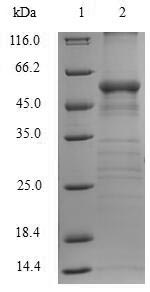

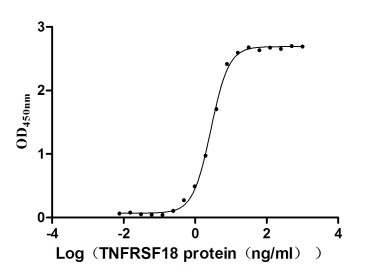
-AC1.jpg)
